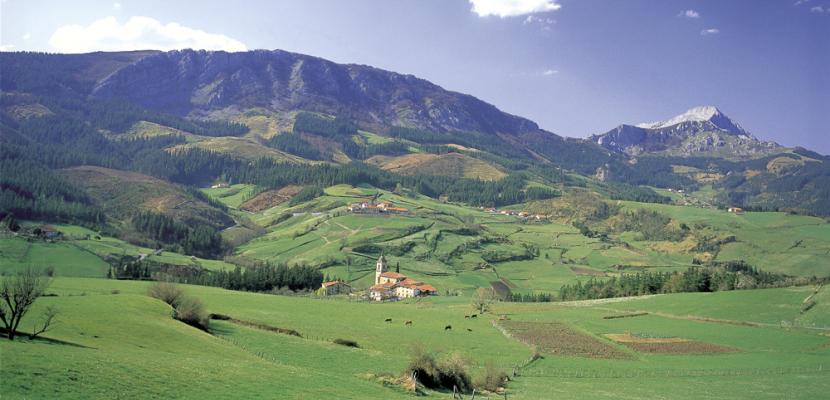
Ecosystem Services assessment in the Basque Country

About this good practice
The work team has been the result of the collective participation of researchers, social organizations, administrative personnel and policymakers. This interdisciplinary group has made possible to integrate scientific methodologies with policymaking practices in order to create useful tools for the sustainable management of the Basque Country. Some examples of these methodoligies: Identification of the ecosystem services in the Basque Country; Diagnosis of the current status of the ecosystem services and their trend during the last quarter century using indicators; Analysis of the main direct drivers of change affecting the supply of services and their trend using indicators; Mapping of the main ecosystem services (Food production, Wood production, Habitat maintenance, Air quality regulation, Water flow regulation, Carbon storage, Pollination, Recreation, Aesthetic value) at different scales (Country, local, urban…) and a proposal of a Green infrastructure for the Basque Country; Applicability and integration mechanisms of the results in the management (Land planning, Environmental Impact Assessment…); Developing an indicator of the territory multifuntionality at municipality scale; Social perception on ecosystem services using surveys.
Expert opinion
Ecosystem services are conditions and processes through which natural ecosystems, and the species that comprise them, sustain and fulfil human life. Europe’s ecosystems, on which we depend for food, timber, clean air, clean water, climate regulation and recreation, suffer from unrelenting pressure caused by intensive land or sea use, climate change, pollution, overexploitation and invasive alien species. Protecting ecosystems and biodiversity are key policy targets in EU’s biodiversity strategy for 2030 and the European Green Deal. This good practice demonstrates how actions taken at regional level can contribute to meeting the objectives of EU Biodiversity strategy and specifically its Action 5 which calls member states to map and assess the state of ecosystems and their services. The practice brought positive outcomes such as the incorporation of its methodological approach and results into several policy documents. The practice has high transferability potential and its methodological framework (the examples of plans and strategies that integrate results from the practice) can be inspirational for other regions.
Resources needed
Evidence of success
Potential for learning or transfer
The ecosystem services practice in the Basque Country contributes to improve nature conservation and land-use policies in that line, with participation of stakeholders. In this sense, sharing a common conceptual and methodological approach with other regions can help to develop suitable practices in other areas of Europe.
In addition to sharing the results (published most of them), it is also important to share the conceptual framework and new applied methodologies, as well as the examples of plans and strategies based in the results of the practice, that have been implemented in the Basque Country.
Further information
Website
Good practice owner
You can contact the good practice owner below for more detailed information.
UNESCO Chair on Sustainable Development and Environmental Education. University of the Basque Country

